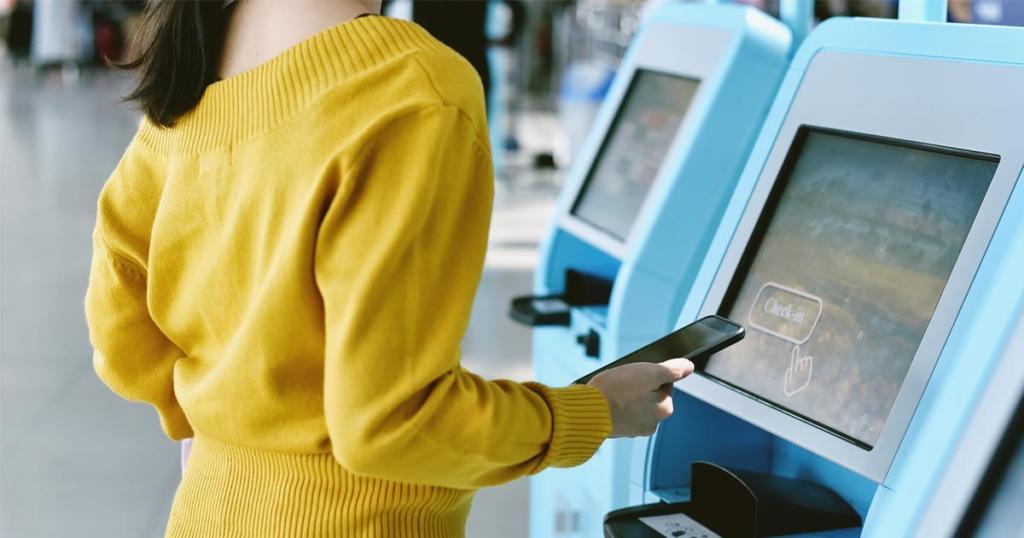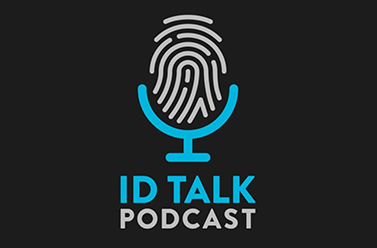Improving safety and security with help from biometrics
By Rob Mungovan
This article first appeared on Airport Technology.

The impacts of the ongoing Covid-19 pandemic have seen the industry adapt its technology and airport processes for passengers when it comes to reducing touchpoints and human contact. This has seen many airports harnessing the power of biometrics to provide a contactless experience for their passengers, to not only enhance Covid-19 safety but to also improve security.
As with most viruses such as the common cold, Covid-19 infection usually takes place through close contact with an infected person or by touching a contaminated surface without proper sanitation afterwards. With research showing that the length of time in which Covid-19 can live on surfaces changing depending on the variant, it is imperative that surfaces are cleaned frequently or are as contactless as they can be.
With thousands of passengers passing through airports worldwide every day, the importance of ensuring safe Covid-19 secure environment is key, this has seen many airports adopting the contactless solution of biometrics. Alongside the Covid-19 security benefits that biometrics can provide airport passengers, the technology also allows a safer environment to be created when it comes to border control and identification checks.
Biometric security company, Aware Inc -a global leader of biometric software products, services, and solutions – aim to empower users to feel in control of their identity while minimizing surface contact. Aware’s solutions support healthcare, financial services, border management, law enforcement and much more.
Rob Mungovan, CCO Aware Inc, explains the benefits of biometric technology and touches on its future development for the industry.
Frankie Youd (FY): Could you provide some background on Aware?
Rob Mungovan (RM): Aware was incorporated 35 years ago, our focus on biometrics has been over the last 25 years. We are really one of the original – at least in the US – companies to participate in biometrics as a pure play vendor of technology associated with biometrics.
We got our start back in the 90s, developing software for the FBI which saw conversion from paper-based fingerprint cards to digital based fingerprint cards. We worked with them to provide certain technology to manage that fingerprint data, and upon that we built a full biometrics business over the course of 24/25 years.
Today we are a pure play biometrics company, software only, we do not make hardware. We design algorithms and systems to capture biometric data to move it around an ecosystem from one point to another and match it, or compare a biometric sample to another sample, or to a gallery, such as a watchlist or known list of people.
You may not see our logo on systems as you traverse through the airport; however, we are in a number of important systems globally in various ways.
How are these algorithms delivered to a system within an airport?
We do not typically build a system and ship it somewhere like kiosk or a surveillance system or camera-based system. We licence software, either to a government directly, or to the integrator that’s delivering the full system to the governments, or to the airports in this case.
That could be a direct licence to a company that makes a kiosk, or it could be a licenced sale to a larger company, let’s say a large integrator that is responsible for ensuring a full system implementation and design. They would buy the hardware from a vendor, they would buy the software from Aware or a company like Aware, and then they would assemble everything and test it out, do a pilot, and then turn it on.
What are the key benefits that biometrics can bring to the user and passenger?
The key benefits that come to my mind immediately are knowing who the people are that are traversing through the airport, so there’s a better understanding of who’s there. Travel across borders in particular is all about keeping track of people: who they are, what they do, are they wanted for any reason?
There’s a security element that you could argue is to the benefit of the governments and airlines, but I would also argue that it’s to the benefit of the travelling public, because you want to feel safe when you travel. You want to make sure if there are bad actors somewhere within the airport then someone knows about them, and they don’t get on the plane with you, or they don’t create havoc in any way.
The travelling public benefits from the increased security that’s applied at the airports and it’s something that happens without you knowing about it, not being fully aware of it and it’s biometrics that help enable that.
How can airports use the biometric data to ensure security?
The airport has passenger’s images so they can take the images and use them in different ways. I’m not privy to how the airport industry or government’s use these images, but they can use them to search against a watchlist, or to confirm the person getting on the plane is in fact someone who checked in, it enhances the security.
The airport knows a lot more about the passengers, let’s put it that way. I think with the current trends of privacy it might make people nervous to know that, but there’s a trade-off between privacy and security and privacy and convenience, and you give up a little bit to gain something else.
The passport entities in the various countries, and here in the US, have agencies that hold all the facial images of everyone who’s been issued a passport or a visa to travel in and out of the US. Those images have been held by government’s ever since we put pictures on passports.
This is not really anything tremendously new, the difference now is that there’s an incentive to enhance automation.
Do you think the Covid-19 pandemic has acted as a catalyst for speeding up biometric development?
I would have to say yes, although I don’t think we’ve seen the uptake or the upside of that development yet in our experiences in a significant way. But there’s a very strong interest in utilising touchless, non-human to human based processes in the travel experience.
I think there are companies like Aware that are actively developing, working on, or retrofitting existing types of systems with newer software and newer types of hardware that would facilitate the touchless experience. I suspect we are moving towards more of a contactless experience in airports.
Do you think that this could be the future for the travel sector?
That has been the vision of certain companies and governments for a while now but implementing it has been not straightforward.
I suspect there are regulations that have prevented some of the implementation. However, the pandemic has accelerated and will accelerate the idea that you can go through an airport securely and conveniently, without significantly interacting with another person.
You’re not standing in a queue, not waiting to have your documents viewed, not waiting to have your boarding pass scanned reviewed. All of that is automated and you see some parts of that now.
Here in the US at certain airports if you’re travelling outside of the US overseas and you’ve presented your passport when you check in at the check in counter, when you get ready to board the plane now there are some airports with systems that allow you to board just by looking at a camera, you don’t have to present your boarding pass.

Robert M. Mungovan has over 20 years of experience with Aware. Prior to his current role as Chief Commercial Officer, Mr. Mungovan served as Aware’s Vice President of Biometrics and as the Sales and Marketing Manager of Biometrics and Imaging. Before joining Aware Mr. Mungovan held positions in several small companies whose focus was digital imaging and machine vision. His passion of working with customers led him on a gradual path from engineering to sales.
Mr. Mungovan’s first responsibility at Aware was to sell and market an Aware-developed technology for fingerprint image processing. From that initial responsibility he has played an instrumental role in the establishment of Aware as a premier standalone American biometric product company. Mr. Mungovan received his Master’s degree in Business Administration from Boston College, his Master’s degree in Engineering from Worcester Polytechnic Institute, and his Bachelors’ degree in Physics from Boston College.
PODCAST | 41 minutes
Aware's New CEO Is Ready to Build: A Conversation With Ajay Amlani


